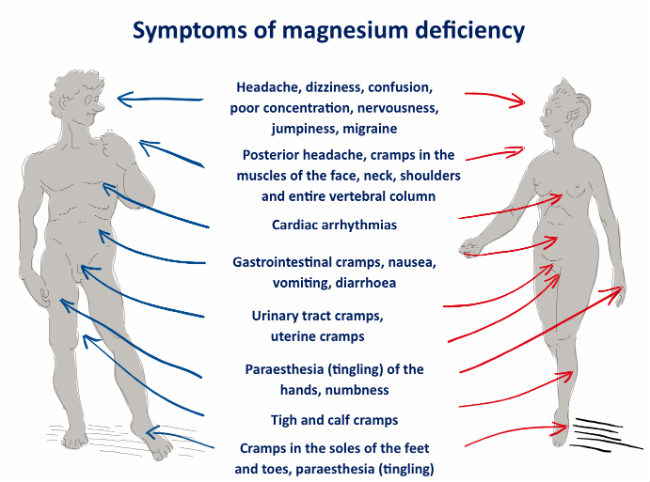- Magnesium: effects on human health
- Magnesium is an essential mineral required by the body for maintaining normal muscle and nerve function, preserving a healthy immune system, maintaining heart rhythm and building strong bones. It is also a cofactor in more than 300 enzyme systems in the body. A deficiency in magnesium can lead to muscle spasms, cardiovascular disease, diabetes, high blood pressure, anxiety disorders, migraines, osteoporosis and cerebral infarction. Conversely, consuming too much magnesium typically causes diarrhea as the body attempts to excrete the excess. The current DV (daily value) for magnesium is 400mg.

- Magnesium is important throughout each stage of life. For children and pre-teens, magnesium (together with calcium) is needed for tooth and bone formation and growth. Research also shows that magnesium is needed for physical and cognitive development.

- Throughout the teens, twenties, and thirties, women need magnesium to help build strong bones and prevent osteoporosis. For pregnant women, magnesium may ensure a healthy pregnancy. Some research shows that women with optimal intakes of magnesium had lower rates of preeclampsia, premature labor, and had bigger, healthier babies.
- After age 40, magnesium is important for both men and women. It can help regulate blood pressure and blood sugar levels and normalizes heart rhythm, reducing the risk of diabetes, heart attack, and stroke.
- Magnesium is ubiquitous in foods, but the content varies substantially. Leafy vegetables, as well as grains and nuts, generally have a higher magnesium content than meats and dairy products.

-
About us
Contact us
Make a suggestion
- Metalpedia is a non-profit website, aiming to broaden metal knowledge and provide extensive reference database to users. It provides users reliable information and knowledge to the greatest extent. If there is any copyright violation, please notify us through our contact details to delete such infringement content promptly.



